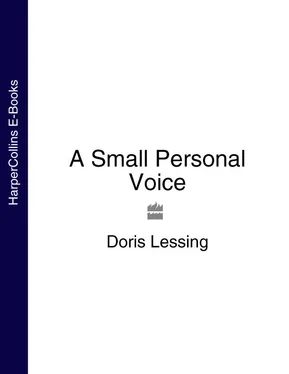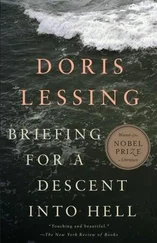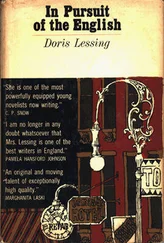DORIS LESSING
A Small Personal Voice
Essays, Reviews, Interviews
Edited and introduced by Paul Schlueter

Cover
Title Page DORIS LESSING A Small Personal Voice Essays, Reviews, Interviews Edited and introduced by Paul Schlueter
Introduction
ON HER LIFE AND WRITINGS
The Small Personal Voice
Preface to The Golden Notebook
Interview with Doris Lessing by Roy Newquist
Doris Lessing at Stony Brook: An Interview by Jonah Raskin
A Talk with Doris Lessing by Florence Howe
My Father
Impertinent Daughters
ON OTHER WRITERS
Afterword to The Story of an African Farm by Olive Schreiner
Allah Be Praised
In the World, Not of It
Vonnegut’s Responsibility
Ant’s Eye View: A Review of The Soul of the White Ant by Eugène Marais
A Deep Darkness: A Review of Out of Africa by Karen Blixen
ON AFRICA
Being Prohibited
The Fruits of Humbug
Note from the Author
About the Author
Also by the Author
Copyright
About the Publisher
INTRODUCTION BY PAUL SCHLUETER
Although most readers of Doris Lessing know her only through her novels and stories, she has also written many essays and given a number of interviews that shed considerable light on her ideas about and commitment to the craft of writing. Increasingly, scholars and others have asked for copies of specific pieces no longer in print or otherwise unavailable, and it is for this reason that this selection has been prepared.
A few words about the selections seem appropriate. The initial piece, ‘The Small Personal Voice,’ appeared in Declaration (London: MacGibbon and Kee, 1957, pp. 11–27) and is Mrs Lessing’s most affirmative essay concerned with the function of the novel in an age of cataclysmic change. Other writers included in Declaration were John Osborne, Colin Wilson, John Wain, and Kenneth Tynan.
The Preface to The Golden Notebook , Mrs Lessing’s most famous and justly praised novel, was written in 1971 for a paperback reprint of the book first published a decade earlier, and appears in both the current British and American editions of the book (London: Michael Joseph and Panther Books, New York: Simon & Schuster and Bantam Books). It also appeared, as ‘On The Golden Notebook’ , in Partisan Review , XL, 1 (1973), pp. 14–30. It is Mrs Lessing’s fullest statement thus far about the novel and is a healthy corrective to numerous misunderstandings and misinterpretations made previously by reviewers and critics.
The interview conducted by Roy Newquist took place in October 1963 and was published in Newquist’s book Counterpoint (Chicago: Rand McNally,1964, pp. 413–24). Jonah Raskin’s interview, ‘Doris Lessing at Stony Brook: An Interview,’ was conducted in May 1969 during a time when Mrs Lessing was spending four days at the State University of New York at Stony Brook and was published in New American Review 8 (New York: New American Library, 1970, pp. 166–79); at the time the Stony Brook campus was undergoing the agonies of political struggle between the activists among the students and the outside authorities, and the interview is more than anything else a dialogue between the two generations of political radicals. Florence Howe’s interview ‘A Talk with Doris Lessing,’ was conducted in October 1966 and published in The Nation , March 6, 1967, pp. 311–13.
Concluding the first section of the book is a piece in which Mrs Lessing discusses her childhood. ‘My Father’ first appeared in the Sunday Telegraph on September 1, 1963, and later appeared in Vogue , in an abridged form, as ‘All Seething Underneath’ (February 15, 1964, pp. 80–1, 132–3).
The second section of this book includes a number of Mrs Lessing’s essays about and reviews of the work of other writers. Readers of her ‘Children of Violence’ series will recognize her frequent references to Olive Schreiner’s The Story of an African Farm (1883) as suggestive of a debt owed by one writer to another, so Mrs Lessing’s ‘Afterword’ to a recent reprint of the novel (New York: Fawcett World Library, 1968, pp. 273–90) is especially timely. ‘Allah Be Praised’ is a review of The Autobiography of Malcolm X , and appeared in the New Statesman (May 27, 1966, pp. 775, 778).
‘In the World, Not of It’ is one of two essays Mrs Lessing has written about the writings of Idries Shah, and appeared in Encounter (August, 1972, pp. 61–4). Another piece, ‘An Ancient Way to New Freedom,’ originally appeared in Vogue for September 15, 1971, and is not included in the present selection because of its availability in a collection entitled The Diffusion of Sufi Ideas in the West , edited by L. Lewin (Boulder, Colo.: Keysign Press, 1972).
‘Vonnegut’s Responsibility’ suggests Mrs Lessing’s interest in writers of our own day, an interest found in her occasional reviews of current books. The essay appeared in the New York Times Book Review (February 4, 1973, p. 35). Eugène Marais’s The Soul of the White Ant was first published in 1937 (translated from Afrikaans) and reissued in 1969; Mrs Lessing’s essay – really more of a tribute than a mere commentary – appeared in the New Statesman , January 29, 1971 under the title ‘Ant’s Eye View.’
And, finally, ‘A Deep Darkness’ is a review of Isak Dinesen’s (pseudonym of Karen Blixen) Shadows on the Grass (1961), but with as much to offer on Blixen’s Out of Africa (1938) as on the more recent book; since both concern the Danish author’s love for and years of residence in Africa, it seems appropriate that Doris Lessing offer such a review. The piece appeared in the New Statesman , January 15, 1971, pp. 87–8.
The book ends with a short group of selections about Africa, the subject of many earlier pieces by Mrs Lessing. ‘Being Prohibited’ describes her visit to South Africa in 1956, following which she was placed on the list of ‘prohibited aliens’ for that country and Southern Rhodesia. The essay was first published in the New Statesman (April 21, 1956, pp. 410, 412), and should be read in conjunction with Mrs Lessing’s book Going Home (1957) in which she provides a detailed account of what she found in colonial Africa.
‘The Fruits of Humbug’ appeared in The Twentieth Century (April 1959, pp. 368–76) as part of a series entitled ‘Crisis in Central Africa,’ and compares Mrs Lessing’s own return to Africa in 1956 with the expulsion of a Member of Parliament from Rhodesia in 1959.
Mrs Lessing’s range of subjects is wide, and her interest in the essay continues year after year. This selection ought to serve well to introduce a different facet of her talent to a popular audience, and to provide the difficult-to-locate materials scholars around the world have been requesting. And the several interviews included enable Mrs Lessing to offer more detailed remarks about her own craft of writing than are otherwise available to a popular audience, and provide even greater understanding of this most gifted writer to the many who enjoy her fiction.
On Her Lifeand Writings
Конец ознакомительного фрагмента.
Читать дальше












